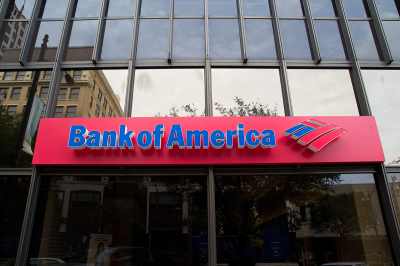BofA’s ‘debanking’ shows how troubling trend of religious discrimination works

Is your local church at risk of having its bank accounts canceled? Based on the experience of Memphis-based Servants of Christ, the answer is yes.
Like the overwhelming number of churches throughout the nation, Servants of Christ financially supports overseas efforts aimed at spreading the Christian message and providing food, clothing, shelter and other essential needs to impoverished and vulnerable populations.
One ministry the church supports is Indigenous Advance Ministries, which partners with on-the-ground groups in Uganda to care for orphaned and at-risk children, educate vulnerable children and prisoners, bolster Christian families, and provide other essential services, including vocational training and more for Ugandans.
Indigenous Advance is doing life-changing work, the kind that lifts people out of generational cycles of desperation, dysfunction, and poverty.
Yet, as inspiring as Indigenous Advance’s mission may be, Bank of America decided this April to abruptly cancel its bank account, which the ministry had opened in 2015. Along with canceling Indigenous Advance’s account, Bank of America sent identical notices of cancellation to Servants of Christ and to a separate for-profit business called Indigenous Advance Customer Center. All three entities had just 30 days to find and switch over to a new banking solution, and they were provided with very little reason why.
The sudden nature of the bank’s decision created a logistical nightmare for Indigenous Advance Ministries, which had to tell its nine Ugandan employees to wait an extra week to receive a paycheck they depend upon for survival. Like many of their countrymen, these Ugandans don’t live paycheck to paycheck, but meal to meal. Waiting an extra week for a paycheck in Uganda isn’t just inconvenient, it can be the difference between eating and going hungry.
Why was Bank of America canceling the accounts?
The initial notices, received on April 24, provided no specific reason. The letters only stated that “upon review of your account(s), we have determined you’re operating in a business type we have chosen not to service at Bank of America.” A later round of letters said, without explanation, that Indigenous Advance “no longer aligns with the bank’s risk tolerance.”
Keep in mind, that the charity — which does not advocate for any political causes — has maintained the same mission since it first opened its account with Bank of America in 2015.
A representative of Servants of Christ and Indigenous Advance repeatedly asked Bank of America employees for a specific reason their accounts had been closed, but the employees gave them the cold shoulder. All the employees would do is read from the previously sent notices.
That shifted in mid-August when a reporter from the international media outlet Daily Mail reached out to Bank of America for comment. Searching for a credible explanation, the bank-concocted excuses that do not withstand even the lightest scrutiny.
First, Bank of America claimed that Indigenous Advance Ministries does debt collection. But it does not. Indigenous Advance Customer Center — the separate, for-profit company — provides that service. Bank of America’s after-the-fact debt collection canard — even if it could be believed — cannot explain the bank’s closure of the Indigenous Advance Ministry account let alone its closure of Servants of Christ’s account.
Second, Bank of America claimed that it does not serve small businesses that operate outside the U.S. But this is irrelevant to the ministry and the church, both of which are U.S.-based and have had accounts with Bank of America since 2015.
It is also telling that the first time Bank of America offered any reason for their actions was four months after the closures when they were contacted by the Daily Mail about the situation. After stonewalling the church and ministry for months, Bank of America suddenly came up with several not-credible reasons for why they closed the accounts.
As part of this wagon-circling exercise, Bank of America also trampled its own promise that the confidentiality of customers’ personal and financial information is its “highest priority.” Rather than hearing from Bank of America, Indigenous Advance and Servants of Christ read about the bank’s “reasons” for closing their accounts along with the rest of the world when the Daily Mail published its story. If customer confidentiality is about building customer confidence and trust, Bank of America is falling well below the line.
No American should have to worry about their bank account being canceled because of their religious views, yet it’s increasingly difficult to escape the conclusion that Indigenous Advance and Servants of Christ are prime examples of a worldwide de-banking trend that has already targeted political leaders in and out of the U.S., well-known religious leaders, and others.
Described by one former JPMorgan Chase executive as “red-dotting,” an account-holder is first deemed a risk for their views. When the time is right, the bank cancels the account with scant explanation. Stonewalling follows, and it’s only when the bank sees a public relations advantage to responding at all that the bank reverse-engineers a plausible reason for the decision it made several months previously.
This is how de-banking works.
Thankfully, Indigenous Advance has decided to stand up to this bullying. With the help of Alliance Defending Freedom, the ministry has filed a consumer complaint calling upon Tennessee Attorney General Jonathan Skrmetti to investigate whether Bank of America illegally discriminated against it because of its religious views.
Banks that are too big to fail are too big for bias. National banks like Bank of America receive a host of benefits from the American taxpayer so that they can serve the public. If Bank of America can’t restrain itself from ideological decision-making, it’s time for public officials to hold it accountable. After all, as we’re seeing with those Indigenous Advance serves in Uganda, these black-box banking decisions have real-world consequences.
Jeremy Tedesco is senior counsel and senior vice president of corporate engagement for Alliance Defending Freedom (@ADFLegal).




















